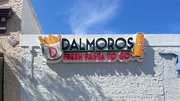Article
Do giveaways really work?
Giveaways can be a great marketing tool, but they shouldn't drive your business.

July 21, 2008
Promoting your restaurant with giveaways is not a bad idea, if you know what your customers want, marketing experts say.
"In these trying economic times … anything that adds value to a purchase is most certainly attractive," said Charles L. Sharp, business professor at theUniversity ofLouisville
That's exactly how Qdoba approaches their marketing strategy.
"We appeal to 18-49 (year-old) demographics, so we are going to pick giveaways that appeal to those people," said Lauren Carpenter, Qdoba's marketing director. "I definitely think it's a great application and a great way to market…if you know who you are trying to reach."
To reach new customers, fast casual restaurants may offer food samples and free meals during restaurant openings, give presentations to businesses located close to their restaurants, or give away T-shirts, cups and other items.
It's been beneficial for Salsarita's Fresh Cantina, said Charles Ratterree, the company's executive vice president. The company's customer surveys show there is a direct correlation between food sampling during the store opening and future success of the store, he said.
It's also been beneficial for Burgers-N-Cream, a restaurant that targets businesses within a half-mile from the store with presentations, food samples and coupons. "We find it more beneficial than spending our money on advertising," said Burgers-N-Cream vice president Darren Tockstein.
Fear factor
Compared to media advertising, food sampling is certainly a cost-effective marketing strategy, said Gary Witt, chairman of the marketing department atWestern International University
"You have a much better chance of converting those people who taste your food, than you do if those people just simply see your ad," Witt said.
The reason is human psychology.
"When anybody offers a new food product…one of the issues that come to mind is, ‘What if I don't like it,'" said Witt, who also is a managing partner of Marketing Psychology group.
"If you give away free samples, then you eliminate that fear," he said. "And if they really like it, then you've not only taken away the fears, but you created a desire on top of it."
Restaurants also should pay special attention to the visual impact of their food to find success.
Consumer food choice is influenced by human receptors, Witt said. Attractive displays can create a saliva effect in the mouths of consumers; food sampling satisfies their cravings; and coupons remind them of their positive experiences.
| ||||||||||||||||||||||
While Witt is convinced about the benefits of food sampling, he is doubtful about T-shirt giveaways.
"You have to give people a reason to wear the shirt," he said. For instance, promise your customers a discount if they wear the shirt when they visit your restaurant.
"You never ever see anybody wearing the T-shirt that says ‘K- Mart,'" Witt said. "It is not in that self-image that people have of themselves."
To enhance that self-image, restaurant operators should hire creative consultants to come up with catchy T-shirt slogans. "The only other way to get people to actually want to wear the shirt is to make it cute or cool in some way," Witt said.
However, restaurant operators shouldn't rely on giveaways to drive their business.
"A company is far, far better off to take the money that they would spend on little gizmos and giveaways… and spend that money on training their employees to create the best possible image of that company," Witt said. "One of the most important reasons people come back to a restaurant in any category is the quality of the customer service."
 ChatGPT
ChatGPT Grok
Grok Perplexity
Perplexity Claude
Claude













